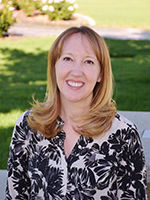
Overview
The professional Doctorate in Speech-Language Pathology is a degree for Master’s-level clinicians who want to increase depth of knowledge while also acquiring clinical research experience. Graduates of the program will gain specialized training in evidence-based practice, critical thinking, and leadership. They will also become skilled at analyzing and synthesizing the existing research literature.
About the Program
The SLPD program consists of 48 credits, and it is designed to be completed in just over two years. Students take two 3-credit courses per quarter across eight consecutive quarters. An option is available to extend the final course across two additional quarters if needed. Only full-time students are admitted into the program.
The SLPD program offers online coursework, often with accompanying live evening classes held via video conference, allowing students to participate from a location that is convenient for them. This format fosters meaningful interaction and engagement between instructors and students. The only required on-campus component is a one-day, in-person orientation at the start of the program. This day is a great opportunity for students to meet faculty and classmates and begin building connections at the start of the program.
The curriculum is structured to advance both scholarly inquiry and clinical expertise. As part of their development as clinical scholars, students design and complete an independent Capstone Research Project under the guidance of a faculty mentor. This project is intended to align with the student’s professional interest and practice and serves as a vehicle for contributing original research to the field. Faculty mentors and program instructors provide support throughout each stage of the process, including the formulation of clinically relevant research questions, securing IRB approval, conducting the study, collaborating with a statistician for data analysis, and preparing the final manuscript for submission to a peer-reviewed journal. In addition to the Capstone Project, students engage in advanced doctoral-level coursework addressing specialized and emerging topics in speech-language pathology, with an emphasis on evidence-based practice, leadership, and critical analysis. Collectively, these courses provide a comprehensive educational experience that equips graduates to advance clinical practice, demonstrate professional leadership, and contribute meaningful scholarship to the discipline.
The Loma Linda Experience
Loma Linda University is a world-renowned health sciences institution recognized for the emphasis on educating students in a values based environment that promotes a lifestyle of wellness. The SLPD program provides licensed clinicians an opportunity to upgrade their knowledge base within a convenient and flexible online academic format.
Speech-Language Pathology Doctorate
Admissions
Note: If you live in a state that has regulatory requirements for online education, please check if Loma Linda University is able to accept residents of your state for online education. You may check LLU State Authorization online or contact the Admissions office for School of Allied Health Professions, 909-558-4599.
In addition to Loma Linda University and School of Allied Health Professions admissions requirements, the applicant must also complete the following requirements:
- Be a speech-language pathologist with a Master’s degree (M.A./M.S.) in speech-language pathology or equivalent and six months of professional practice beyond completion of their Clinical Fellowship Year (CFY).
- Have a current Certificate of Clinical Competence (CCC), and current licensure in one of the 50 United States.
- Document a minimum graduate G.P.A. of 3.3.
- Provide three letters of reference.
- Submit a two- to three-page written statement describing research interests (and experience, if any), professional experience/accomplishments, reason for pursuing a Doctorate in Speech-Language Pathology, and reason for attending Loma Linda University. If the applicant has a particular faculty mentor in mind, they should be mentioned here.
In the admissions screening process, the applicant’s recommendations, interview, personal statement, and work experience are all considered. The most qualified applicants will be selected to be interviewed. The strength of the interview will be evaluated along with the applicant's stated research goals/plans. Admission will be decided based on the perceived potential of the applicant to succeed in this clinical research program as well as availability of a faculty mentor suited to the applicant’s research area.
Program Curriculum
Student Learning Outcomes
By the end of the program, the SLPD graduate should be able to:
- Identify and develop personal leadership skills
- Design and implement clinical-based research
- Interpret and disseminate research findings
- Apply current clinical practices to personal practice case studies
The SLPD program is split into two broad domains: research and professional content.
Domain 1. Research
Students in the SLPD program engage in coursework that fosters a foundation in empirical research, critical analysis, and statistics. Building on this knowledge, each student will design and conduct a capstone research project under the guidance and mentorship of faculty. Through this process, students not only develop valuable research skills but also generate new knowledge that contributes to the advancement of the speech-language pathology profession. Upon completion of the program, graduates will have meaningful clinical research experience, and a research manuscript prepared for submission to a peer-reviewed journal, positioning them to share their insights with the broader professional community.
The following classes are taken:
- SLPD 600 Components of Critical Inquiry (3)
- SLPD 611 Capstone Proposal & IRB (3)
- SLPD 621 Capstone Planning (3)
- SLPD 623 Capstone II (3)
- SLPD 624 Capstone III (3)
- SLPD 625 Capstone IV (3)
- SLPD 626 Dissemination of Research (3)
Domain 2. Content
The SLPD program offers clinicians the opportunity to deepen their clinical expertise by engaging in course work that focuses on relevant and specialized areas of the field, thereby broadening their knowledge base and enhancing professional competence.
- SLPD 555 Translating Research
- RELE 524 Bioethics
- RELR 540 Wholeness & Health (service learning) (3)
- SLPD 570 Special Topics in SLP (3) – taken three times in different clinical areas
- SLPD 580 Clinical Issues in SLP (2)
- Electives (two will be taken)
- AHCJ 567 Personal Leadership (3)
- AHCJ 566 Theoretical Foundations of Leadership (3)
- OTCH 606 Leadership for Health (3)
SERVICE LEARNING REQUIREMENT
Students will take a designated service-learning religion course during the program. For more information about this requirement and a list of religion courses that fulfill it, see section on academic service learning in this CATALOG.
NORMAL TIME TO COMPLETE THE PROGRAM
2.3 – 2.9 years (eight [8] – ten [10] academic quarters)
Faculty Mentors
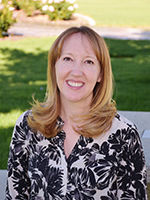
Julia Hollister, PhD, CCC-SLP
FACULTY MENTOR
RESEARCH INTERESTS:
- Stuttering Perceptions and Experiences
- Wholistic Stuttering Intervention Practices
- Temperament and Speech/Language Outcomes and Perceptions
- Resilience
- Spiritually Responsive Care
- Reflective Writing Pedagogy
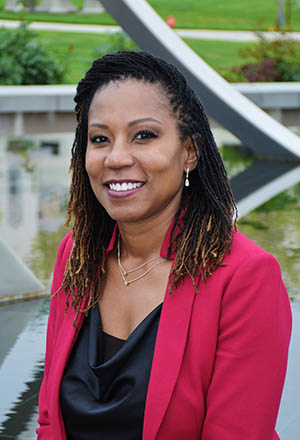
Lamitra Baez, PhD, CCC-SLP
FACULTY MENTOR
RESEARCH INTERESTS:
- Child Language Disorders
- Early Intervention
- Cultural and/or Linguistic Diversity
- Differential Diagnosis
- Assessment and Intervention for Children
- Narrative Development in Diverse Populations
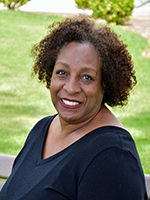
Karen Mainess, PhD, CCC-SLP
FACULTY MENTOR
RESEARCH INTERESTS:
- Child Language Disorders
- Speech Sound Disorders
- Children with Autism
- Narrative Development in Diverse Populations
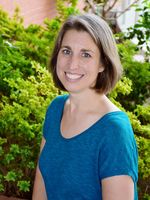
Christina Nobriga, PhD, CCC-SLP
FACULTY MENTOR
RESEARCH INTERESTS:
- Quality of Life in Voice and Swallowing
- Practice Patterns in Voice and Swallowing
- Perceptual Rating Scales in Voice
- Thickened Liquids in Swallowing
- Voice/Swallowing Associated Topics (e.g., Cleft Palate)
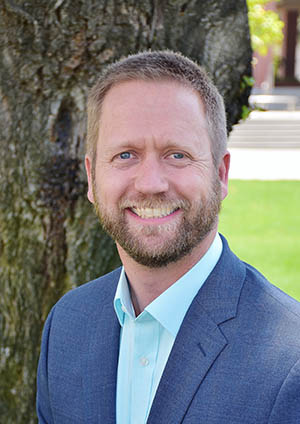
Eric Reid, PhD, CCC-SLP
FACULTY MENTOR
RESEARCH INTERESTS:
- Bilingualism/Biculturalism/Bidialectalism
- Speech Science (Phonetics/Acoustics/Instrumentation Analysis)
- Speech Perception
- Speech Sound Disorders
- Dialectal Instruction
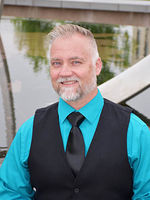
Brian Sharp, PhD, CCC-SLP
FACULTY MENTOR
RESEARCH INTERESTS:
- Adult Neurogenic Disorders
- Aphasia Therapy Approaches (e.g., forced use approach)
- Psychoneuroimmunology (PNI)
- Cognitive Retraining
- Neural plasticity, adult stroke, adult TBI, etc.
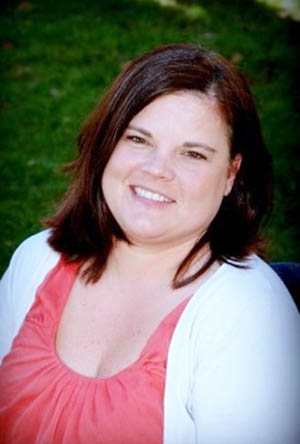
Jennifer St. Clair, PhD, CCC-SLP
FACULTY MENTOR
RESEARCH INTERESTS:
- Clinical Instruction
- Speech Sound Disorders
- Supervision
- Shortage of SLPs
FAQ
What is an SLPD?
The SLPD is a professional Doctorate in Speech-Language Pathology. It is designed for practicing clinicians who wish to upgrade their credentials and get training in conducting clinical research.
Why get your Doctorate in Speech-Language Pathology (SLPD)?
The SLPD is beneficial to individuals who wish to take on roles as leaders, clinical educators, clinical administrators, or who wish to conduct their own independent research. For more information, see the results of ASHA’s report on Clinical Doctorates in SLP.
- Depth of Knowledge – The scope of practice in speech-language pathology continues to expand, encompassing an increasingly wide range of clinical areas. Coursework at the master’s level cannot provide comprehensive coverage of every topic within the discipline. The SLPD program offers clinicians the opportunity to deepen their expertise by engaging in course work that focuses on relevant and specialized areas of the field, thereby broadening their knowledge base and enhancing professional competence.
- Clinical Research – Students in the SLPD program engage in coursework that fosters a foundation in empirical research, critical analysis, and statistics. Building on this knowledge, each student will design and conduct a capstone research project under the guidance and mentorship of faculty. Through this process, students not only develop valuable research skills but also generate new knowledge that contributes to the advancement of the speech-language pathology profession. Upon completion of the program, graduates will have meaningful clinical research experience, and a research manuscript prepared for submission to a peer-reviewed journal, positioning them to share their insights with the broader professional community.
- Professional Development – Across the allied health disciplines, clinical and professional doctorates are increasingly becoming the standard entry-level degree for practice (e.g., Audiology, Nursing, Physical Therapy). Although a doctoral degree is not currently required for Speech-Language Pathologists, pursuing one strengthens clinicians’ professional credentials and helps them remain competitive for leadership, management, and administrative opportunities.
- Convenient – The SLPD program at Loma Linda University is designed to support working professionals who wish to advance their careers without the extensive time commitment of a PhD. The program offers online coursework, often with accompanying live evening classes held via video conference, allowing students to participate from a location that is convenient for them. This format fosters meaningful interaction and engagement between instructors and students. The only required on-campus component is a one-day, in-person orientation at the start of the program. While attendance at graduation weekend is not required, we warmly encourage students to join us on campus to celebrate this important milestone together.
How does an SLPD degree compare to a PhD?
A doctorate in speech-language pathology is a professional degree and is shorter than a PhD. Our program provides all the training and skills needed to conduct clinical research but does not have the scope of a PhD. This means it is much more manageable with regard to time commitment (most PhDs take 4+ years as a full-time student to complete).
What is the course load like? How long does it take to complete the program?
The SLPD program is structured as 2 courses per quarter over the span of 8 quarters, totaling 48 credit units. Each course typically carries three credit units. In general, students are expected to dedicate two to three hours per week per credit outside of class to complete assignments, engage with readings, and prepare for upcoming sessions. For Capstone research credits, students should plan to spend three to four hours per week per credit on research activities and related project work.
Is the program traditional (face-to-face), online, or hybrid/blended?
The program is primarily online, with just one required in-person visit to the LLU campus for orientation day. This day is a great opportunity to meet faculty and classmates and begin building connections as students start the program
What is the program like? Is there a dissertation?
The first year is primarily made up of content courses. In the second year, the capstone sequence begins. The Capstone Project (sometimes called an Applied Dissertation) is a written manuscript in publishable form documenting a research project designed and carried out by the student. The Faculty Research Mentor and the SLPD student submit this manuscript for potential publication, if deemed worthy of submission. It is comparable to a dissertation, but less ambitious in scope (dissertations typically consist of multiple studies). See Curriculum page.
How many students do you accept each year?
This varies depending on the strength of the applications we receive as well as the availability of faculty to mentor in a given area of interest. In order to ensure the quality of the program, we will be restricting the number of students we admit (3-5 per cohort).
When is the application due? What is the timeline for the application process?
The deadline for applications is June 15, 2026.
What is needed to apply? What are the requirements for prospective students?
In addition to filling out the application form and a personal statement, you will be asked for letters of recommendation, a resume, and transcripts. The strongest applicants will be selected for an online interview. You will also be given an article to read and then respond to a prompt in the form of an essay that discusses key points in the article. See SAHP Admissions page and CMSD admissions.
Is admission rolling?
Yes. Once an application is submitted, applicants will be contacted for a formal interview. Students who apply early will have a higher chance of preferred mentor availability. All accepted students will start in one cohort in the fall.
How much does the program cost? Will there be funding available?
Get details on the standard cost of attendance at LLU. View Estimates
Is this program accredited by ASHA?
No, ASHA does not currently accredit SLPD programs.

